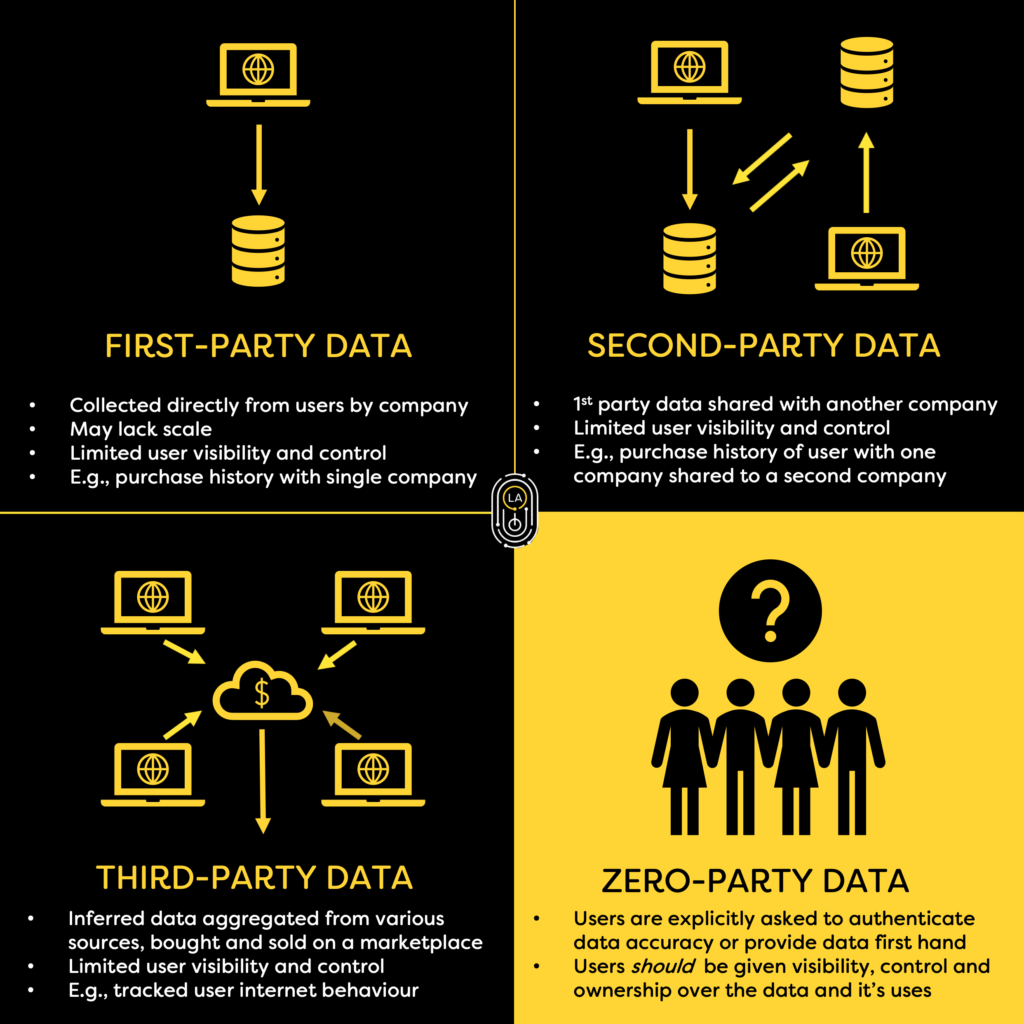Microsoft has just announced that it has turned to something called “zero-party data” to “promote trust and relevancy in advertising”. Well, the notion of what they are trying to achieve is certainly a solid one, but how does it really stand up against the billing?
To understand this we need to take a quick look at the various “data parties” you can find yourself part of. First-party, second-party, third-party, and now zero-party. Sadly these parties aren’t quite as fun as they might initially sound. But more to the point, what’s the difference, why should you care, and which ones should you be ok with an invite to?!
The following infographic is LetAlone’s illustration of the main differences; it is mostly about how the data was sourced. Zero-party data is widely being described as something that is user-authenticated (i.e., you were asked to confirm the accuracy, rather than the data being purely based on a log of your past online activities or an algorithmic extrapolation of your online behaviour).

A critical feature we believe should be part of zero-party data however, that others are not yet providing, is that users should be given visibility, control and ownership over that authenticated data. Otherwise, a user is confirming the data is accurate, only to hand it over to a company to use as they please, indefinitely. Where is the agency for the user without the ownership?
Zero-party data is powerful. Potentially the most accurate form of user data. It provides the opportunity to combine the best of algorithmic analyses with human confirmation. Ultimately, the data should belong to the users that authenticated it. Only they should be able to decide where that data goes, who uses it, and what for.
This is our stance. And if you are sold a story, such as the Microsoft one, that zero-party data promotes trust, ask yourself: who is the trust actually for?
In this instance it’s actually the big corporations gaining trust that they now have more accurate data to sell and take advantage of, rather than the user gaining trust they are no longer being manipulated. We think it should always be the latter. We are not so sure Microsoft and others currently agree…